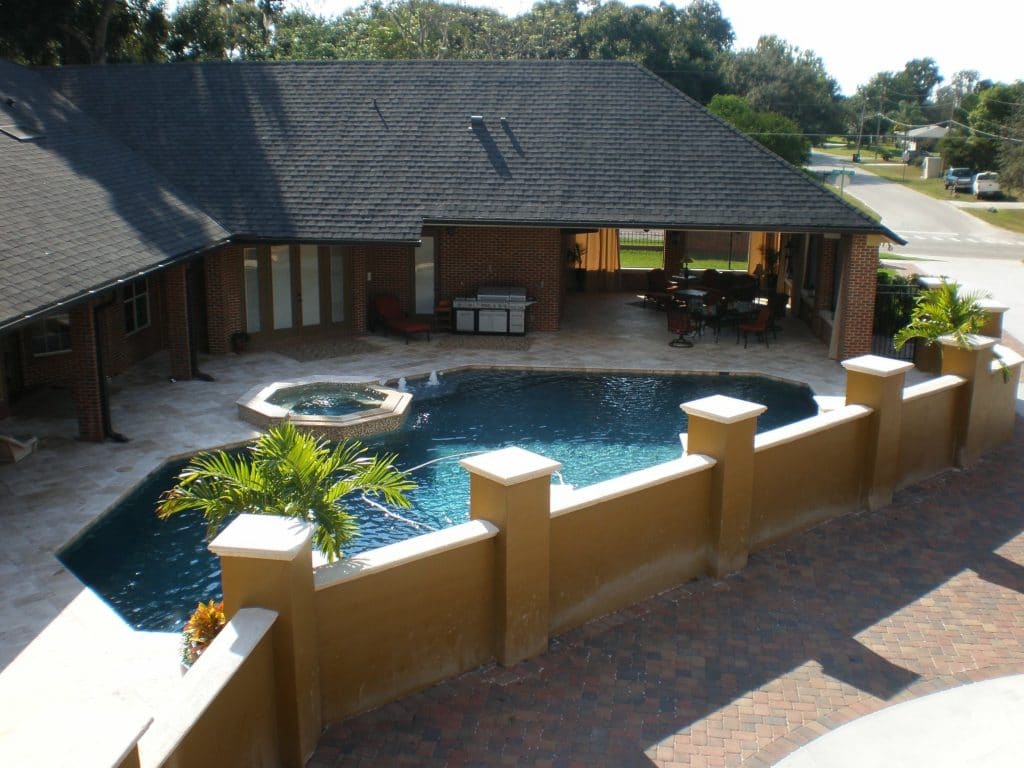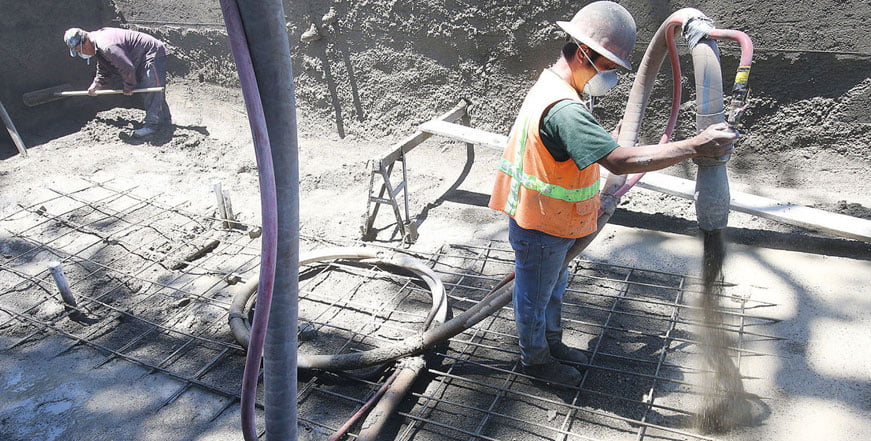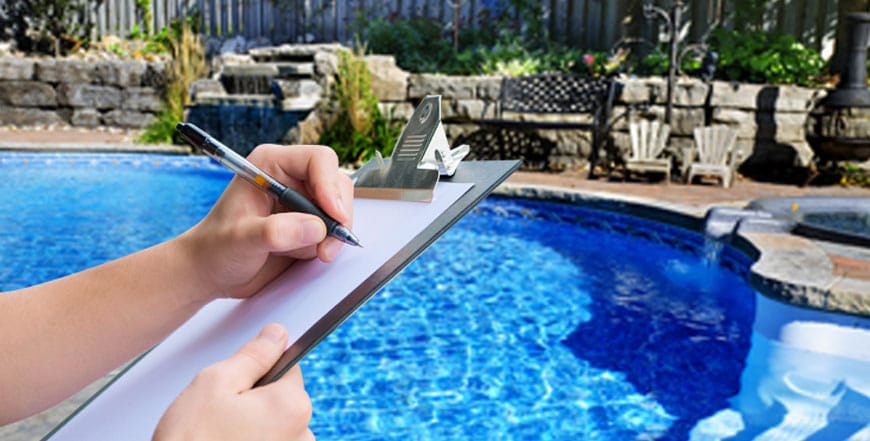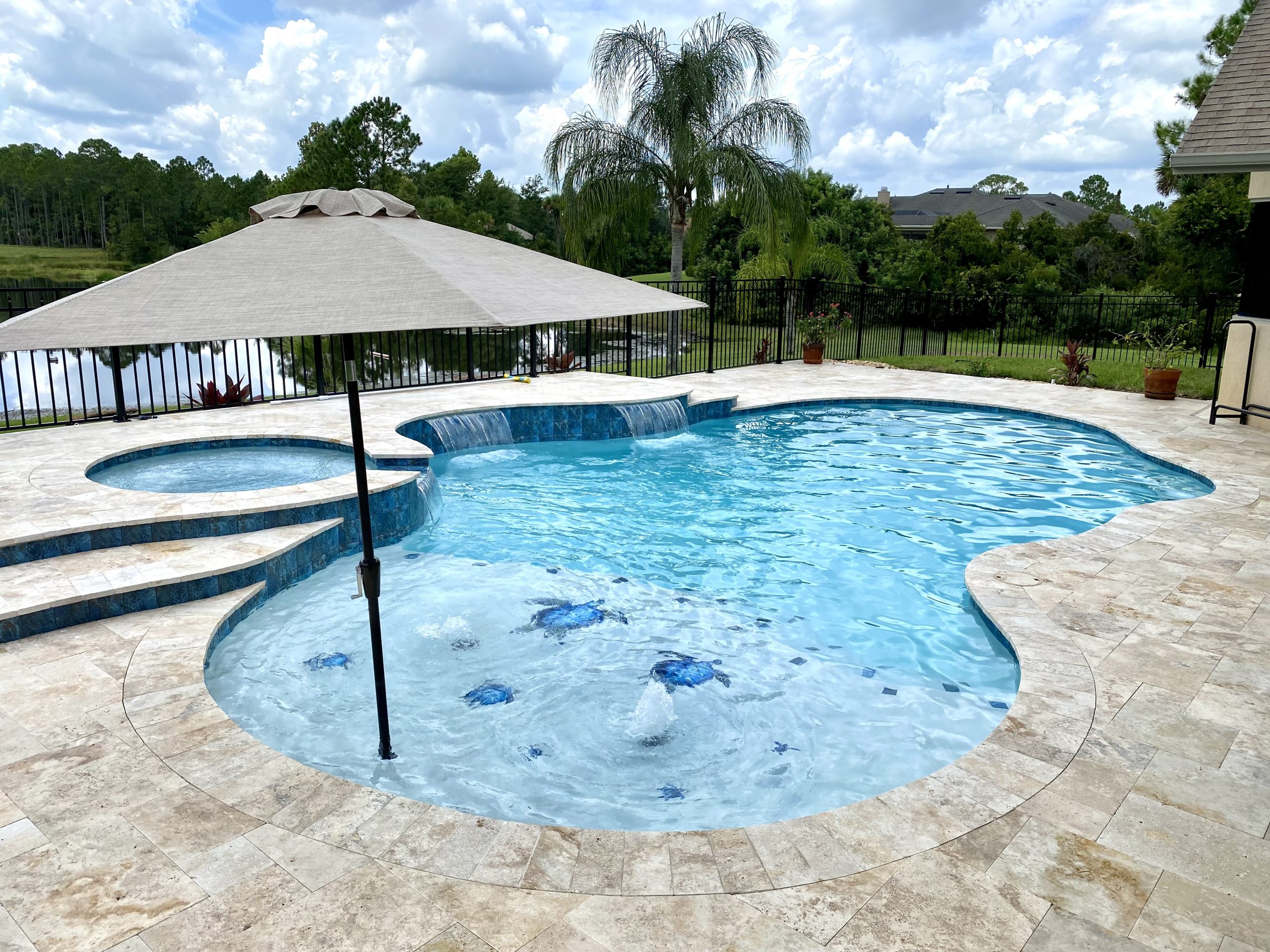Guide to Pool Buying | Adding a Swimming Pool to Your Home
Adding a swimming pool to your home is a significant investment that can enhance your property’s value and provide endless enjoyment. Whether you’re envisioning your backyard with a serene infinity pool, or a saltwater oasis, careful planning and execution are essential. Here’s a step-by-step guide to buying a pool for your home.
1. Deciding on a Budget
Before you begin, it’s crucial to determine how much you’re willing to spend. The budget for adding a swimming pool can range between $50,000 and well into the hundreds of thousands.
Avoid Overspending! While it might be tempting to splurge on the latest features and luxurious finishes, it’s important to remember that overspending on a new swimming pool may not necessarily result in a greater return on investment. In many cases, moderate enhancements can provide substantial enjoyment without the hefty price tag. Moreover, going beyond your budget can create significant stress from the financial burden, impacting your overall quality of life. It’s essential to strike a balance between creating a beautiful, functional pool and maintaining financial stability. Always consult with professionals and consider both short-term enjoyment and long-term financial health when making your decisions.
Tips:
- Assess Your Finances: Review your savings and consider financing options if necessary.
- Include All Costs: Factor in additional expenses such as landscaping, fencing, and ongoing maintenance.
- Plan for Contingencies: Set aside an extra 10% of your budget for unexpected costs.
2. Selecting the Desired Area

Choosing the right location in your backyard is key to maximizing the pool’s functionality and aesthetic appeal.
Addressing Site Preparation
In some cases, the desired area for your new swimming pool may require significant site preparation. This could include the demolition of an existing patio, the removal of another property feature, or even cutting down trees. Each of these tasks comes with its own set of challenges and considerations. For instance, removing trees can be complex due to root systems and potential permits required by local authorities. Additionally, demolishing any existing structures will generate debris that needs to be properly disposed of, potentially adding to your overall costs.
Seek Professional Advice
Before beginning any demolition work, it’s crucial to consult with your pool builder or a landscape professional. Their expertise will help you understand the full scope of the preparation needed and ensure the job is done safely and efficiently. A professional assessment can identify any potential issues, such as underground utilities, soil stability, and drainage concerns, that could impact your pool project. By seeking professional advice, you’ll be better equipped to plan and execute the project smoothly, ultimately creating a pool area that’s both beautiful and functional.
Optimizing Available Space
To make the most out of your residential backyard, collaborate closely with your chosen pool builder. They can provide valuable insight on space optimization.
Tips:
- Use Multi-Functional Designs: Incorporate features like built-in seating or a poolside deck to maximize utility.
- Consider Landscaping: Use plants and hardscapes to enhance the pool area’s beauty and functionality.
- Plan for Future Needs: Think ahead about how the pool area might be used in the future, such as adding a hot tub or outdoor kitchen.
- Consider Sun Exposure: Select an area that receives ample sunlight for most of the day.
- Check Accessibility: Ensure the location is easily accessible from your home.
- Think About Privacy: Choose a spot that offers privacy from neighbors and street view.
3. Researching Local Pool Builders
A reputable and experienced pool builder can turn your vision into reality. Start by gathering recommendations and reading reviews.
When researching local pool builders, it’s beneficial to gather recommendations from those within your community. Speak to your neighbors who have recently installed a pool or, seek advice from friends at your local church. These individuals can provide firsthand insights into their experiences, helping you identify reputable builders who have a proven track record.
Why Choose a Local Pool Builder?
A builder who is local to your area will inherently possess greater knowledge of the specific conditions affecting your project. This includes understanding the soil composition, as different soil types can significantly impact the pool’s construction and longevity. Moreover, local builders are typically well-versed in the permitting requirements set forth by your municipality, ensuring all legal and regulatory aspects are thoroughly addressed, which can streamline the approval process.
Addressing Community Specifics
Another advantage is their familiarity with any Homeowners Association (HOA) restrictions, which can vary greatly and may include specific guidelines on pool size, design, and location. By opting for a local professional, you reduce the likelihood of facing delays or compliance issues that could arise from overlooked community-specific regulations.
Tips:
- Leverage Community Connections: Utilize social networks and local social media groups for builder recommendations.
- Verify Credentials: Ensure the builder is licensed and insured within your state or locality.
- Review Past Work: Request to see a portfolio of past projects or visit completed installations to gauge the builder’s quality and style.
- Ask for Referrals: Speak with friends or family who have recently installed a pool.
- Read Online Reviews: Check platforms like Yelp, Google, and local forums.
- Visit Showrooms: Take the time to visit pool builder showrooms to see their work firsthand.
4. Selecting a Pool Builder

After researching, it’s time to choose the pool builder who best aligns with your vision and budget.
Important Questions to Ask While Interviewing a Pool Builder
When interviewing potential pool builders, it’s essential to ask the right questions to ensure you hire a reliable and skilled professional. Here’s a list of important questions to guide your discussions:
1. What is your experience in building residential pools?
- Look for a builder with a solid track record of successfully completed projects similar to your vision.
2. Can you provide references or testimonials from previous clients?
- Contact previous clients to learn about their experiences and satisfaction with the builder’s work.
3. Are you licensed and insured?
- Verify that the builder holds the necessary licenses and insurance to protect you from liability and ensure quality standards.
4. Do you have a portfolio of past projects we can review?
- Reviewing a portfolio can give you a sense of the builder’s style and expertise.
5. What is the estimated timeline for completion?
- Get a clear understanding of the project timeline from start to finish, including any potential delays.
6. What kind of warranty do you offer?
- Ensure that the builder provides a comprehensive warranty on both the construction and materials used.
7. How do you handle changes or modifications during the project?
- Discuss how additional requests or unforeseen issues will be managed and reflected in the budget and timeline.
8. What are the payment schedule and terms?
- Clarify the payment structure, including upfront costs, milestone payments, and the final payment upon completion.
9. Will you handle all necessary permits and inspections?
- Confirm that the builder will take care of securing permits and scheduling inspections to ensure compliance with local regulations.
10. What type of maintenance and support do you offer post-construction?
- Inquire about ongoing maintenance services and any support provided after the pool is completed.
By asking these critical questions, you can make an informed decision and select a pool builder who meets your expectations and ensures a successful pool installation.
Tips:
- Conduct Multiple Interviews: Interview multiple local builders and take notes.
- Get Multiple Quotes: Obtain quotes from at least three different builders.
- Check Credentials: Ensure the builder is licensed, insured, and has a good track record.
- Review Contracts: Carefully read and understand the contract terms before signing.
Important!
Select a Pool Builder that uses 3D design and modeling technology to provide you with free conceptual pool designs.
3D Pool Design Technology | Virtual Reality Pool Design
Choosing a pool builder that utilizes 3D design and modeling technology is crucial for ensuring you achieve the pool of your dreams. This technology allows homeowners to visualize the final look and feel of their pool before any construction begins, providing a clear and realistic preview. By seeing a detailed 3D representation, you can make informed decisions about the placement, shape, and features of your pool, and how it will integrate with the overall landscape of your backyard.
Benefits of 3D Design and Modeling Technology
- Enhanced Visualization: 3D design tools offer a lifelike view of your future pool, including intricate details such as water features, lighting, and surrounding landscaping.
- Design Flexibility: Homeowners can experiment with different pool styles, materials, and configurations, ensuring the perfect match for their aesthetic preferences and functional needs with minimal effort from the designer.
- Efficient Revisions: Any changes to the pool design can be quickly implemented in the 3D model, allowing for real-time updates and adjustments without the need for extensive redrawing.
- Improved Planning: Accurate 3D models help in better planning for structural requirements, ensuring that the construction process is smooth, and any potential issues are identified and resolved early.
- Customer Confidence: Seeing a realistic preview of the final product increases homeowner confidence and satisfaction, knowing that the end result will match their vision.
By selecting a pool builder who leverages advanced 3D design and modeling, you not only streamline the design process but also ensure a high degree of precision and satisfaction with the final pool installation.
5. Overseeing the Pool Building Progress
Your involvement doesn’t end once construction begins. Regularly monitoring the progress ensures the project stays on track. Understanding the details of the project is crucial because even experienced pool builders can make mistakes. As a homeowner, regularly inspecting each stage of the construction process helps identify and address any issues early on. By staying engaged and attentive, you can ensure that the work aligns with the agreed-upon design and quality standards.
Inspect Every Stage Completed

Inspecting the pool at various stages of construction is essential for:
- Identifying Errors Early: By checking the work after each major milestone, you can catch mistakes before they compound. This might include the initial layout, plumbing, wiring, and concrete work.
- Ensuring Compliance with Design: Regular inspections confirm that the build conforms to the 3D designs and plans you’ve approved. Adjustments can be made promptly to avoid costly corrections later.
- Quality Assurance: Inspections allow you to verify that high-quality materials and techniques are used throughout the project. Ensuring the integrity of the build offers peace of mind and longevity for your pool.
- Maintaining Communication: Regular check-ins foster open communication with your builder, making it more likely that your concerns and preferences are understood and implemented.
- Meeting Milestones: Tracking progress helps ensure the project is moving according to the timeline, facilitating on-time completion.
By inspecting every stage upon completion, homeowners can play a proactive role in the successful construction of their pool, ensuring the final product meets their expectations.
Tips:
- Schedule Regular Check-Ins: Arrange periodic site visits to oversee the work.
- Communicate Openly: Maintain clear communication with the builder to address any concerns promptly.
- Document Changes: Keep records of any changes or agreements made during the construction process.
Guide to Pool Buying Conclusion
Buying a pool for your home is an exciting venture that requires careful planning and consideration. By following our guide to buying a new pool, you’ll be well on your way to creating a beautiful and functional backyard oasis.
Ready to take the plunge? Contact Us for a free pool consultation and a 3d pool design, start turning your dream pool into a reality today!
